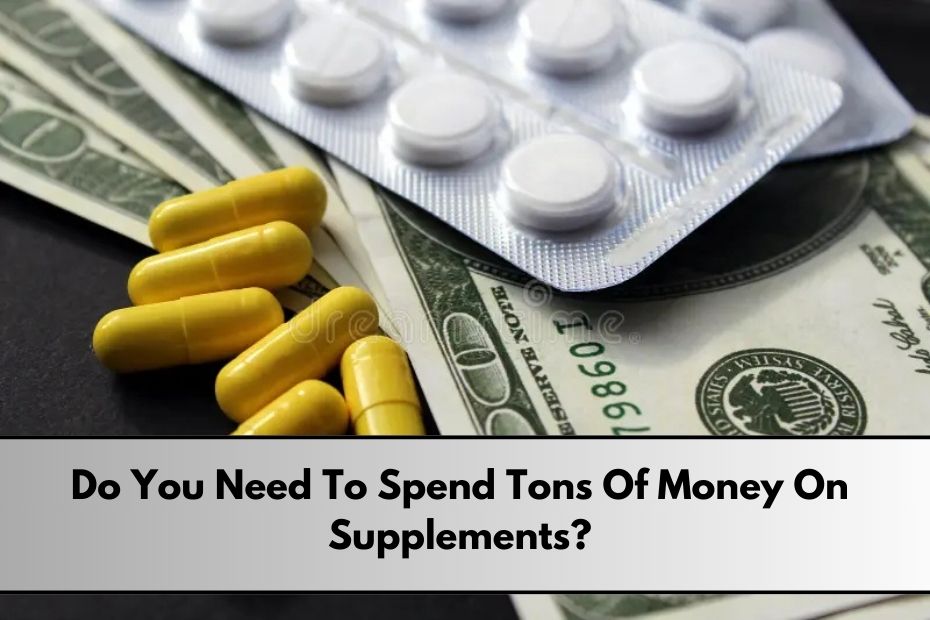Do You Need To Spend Tons Of Money On Supplements? When it comes to health and nutrition, many wonder if they need to spend a lot of money on supplements. With Americans spending nearly $35 billion annually on vitamins and other supplements, it’s worth asking: Are they necessary for everyone? Let’s break it down.
Understanding the Value of Supplements
Quality vs. Cost
Not all supplements are the same. Expensive ones often have better quality because they’re made with rigorous safety and effectiveness standards. Clean supplements without unnecessary fillers cost more to produce, but affordable, good-quality options are available too.
Nutritional Needs
Most healthy people can get all the nutrients they need from a balanced diet of fruits, vegetables, whole grains, and lean proteins. According to Harvard Health, supplements might not be necessary if you’re eating well. Supplements should mainly fill gaps if you’re deficient in something, as determined by a healthcare provider.
The Role of Supplements
Supplements can be helpful for specific groups:
- Pregnant Women: They may need folic acid to support the baby’s development.
- Nutrient Deficiencies: If you’re low on vitamins like D or B12, supplements can help.
- Dietary Restrictions: Vegans or others with limited diets may need extra nutrients.
However, supplements shouldn’t replace real, whole foods.
When Are Supplements Necessary?
Some situations where supplements make sense include:
- Diagnosed Deficiencies: A doctor has identified a lack of certain nutrients.
- Life Stages: Pregnant women, older adults, or growing kids might need extra nutrients.
- Dietary Limits: Vegans or those avoiding specific foods may need help filling nutritional gaps.
Cost-Effective Strategies for Health
- Eat Whole Foods: Focus on fresh fruits, veggies, nuts, seeds, and grains. They’re packed with nutrients and save money in the long run.
- Choose Quality: If you need supplements, pick those tested for safety and quality. Look for third-party certifications.
- Ask an Expert: Talk to a doctor or dietitian before taking supplements. They can guide you based on your needs.
Conclusion
Spending a lot on supplements isn’t necessary for most people. A balanced diet often provides all the nutrients you need. If you decide to use supplements, focus on quality over price and consult a healthcare provider to ensure they’re right for you. By prioritizing whole foods and making smart choices, you can stay healthy without breaking the bank.
FAQ’s
Are expensive supplements better than cheap ones?
Not always. While higher prices can indicate better quality, affordable supplements that meet safety and quality standards are also available.
Can I get all my nutrients from food instead of supplements?
Yes, most people can meet their nutritional needs with a balanced diet of fruits, vegetables, grains, and proteins. Supplements are helpful for specific deficiencies or conditions.
Should I consult a doctor before taking supplements?
Absolutely. A healthcare provider can assess your needs and recommend the right supplements, ensuring you don’t spend money on unnecessary products.

